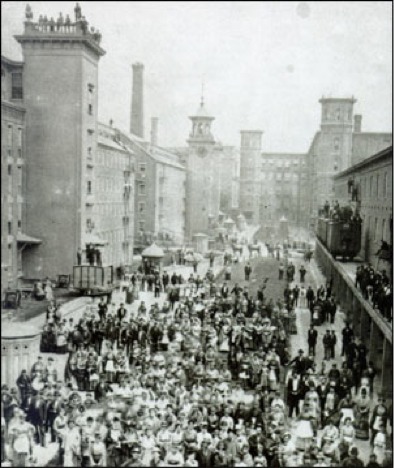Sign up for FlowVella
Sign up with FacebookAlready have an account? Sign in now
By registering you are agreeing to our
Terms of Service
Loading Flow



Protest
•Even at the pinnacle of its renown, however, conditions in Lowell had begun to deteriorate. In 1834, an economic downturn led to the mills' first wage cuts. In the 1840s, managers instituted a speedup, requiring higher and higher output for the same hourly wage. The women formed the Lowell Female Labor Reform Association and tried to appeal to their employers and then to the state legislature through petitions.
•Lowell’s textile corporations paid higher wages than those in other cities, but the work was hard and the working conditions were often unhealthy.
One of the first strikes of cotton-factory operatives that ever took place in this country was that in Lowell, in October, 1836. When it was announced that the wages were to be cut down, great indignation was felt, and it was decided to strike, en masse. his was done. The mills were shut down, and the girls went in procession from their several corporations to the “grove” on Chapel Hill, and listened to “incendiary” speeches from early labor reformers.

